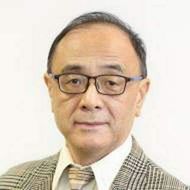Will Covid-19 be the catastrophe that ends China's good fortune?
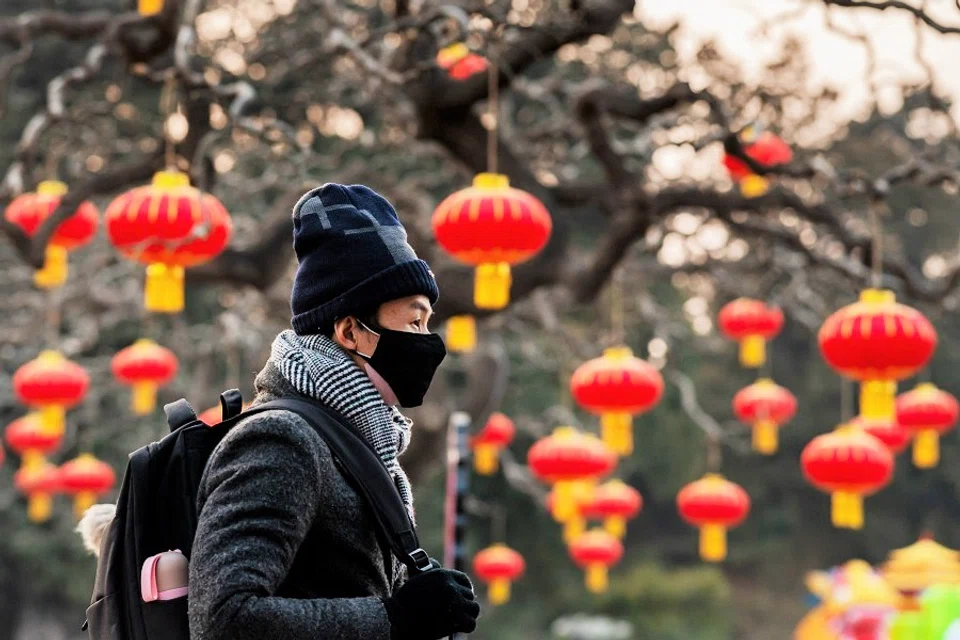
China has enjoyed a period of unprecedented exuberance since it embarked on reform and opening up in the late seventies. In a short span of 30 years, it has become the second-largest economy in the world and its accomplishments in various spheres receive worldwide attention. According to traditional Chinese beliefs, one's luck resets every 30 years. China has already exceeded that by quite a bit, and can be considered lucky compared with other powers on the rise. Yet change seems to be in the air. Is China facing a reversal of fate?
Its economy has - for the first time since the Cultural Revolution - registered negative growth.
This sense of a reversal firstly stems from deteriorating international conditions. The China-US trade war of unprecedented scale is rapidly spilling into other areas, turning into a full-blown contest between both powers. The phase one trade agreement was already a setback for China; the raging Covid-19 pandemic only made matters worse when China was placed under a months-long lockdown and there was a suspension of the economy. Its economy has - for the first time since the Cultural Revolution - registered negative growth. After the outbreak subsides, China will be faced with an even tougher international environment.
For one, a weakened global economy will have a negative impact on China's economic growth. For another, the rise of anti-globalisation sentiment and populist ideologies in the West will result in more trade barriers. Western countries - especially the US - are pushing for decoupling from China, and are expected to curtail and exert pressure on China in various fields such as technology, education, and humanities. China will also face tough questioning about causes of the outbreak and its handling of the Covid-19 pandemic that has caused so much suffering and damages around the globe; broad-based anger and backlash are expected when nations, companies and individuals begin to tally their losses; and anti-China politics will be on the rise while China's international standing may see a big fall. The pandemic may turn out the perfect storm that ends China's long streak of good fortune.
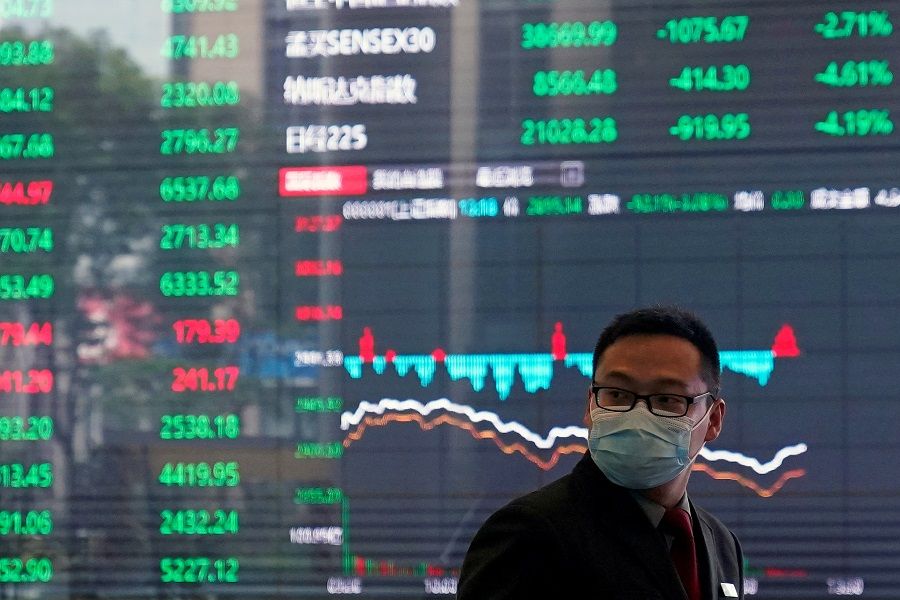
Domestically, China's economic growth has slowed since the later period of former President Hu Jintao's second term in office. By 2013, China began to talk about a "new normal" of slower economic growth. Deceleration continued to reach 6.2% in 2019, from the double-digit growth China was used to. To top it off, the ongoing pandemic has brought about great uncertainties and is likely to shift global supply chains.
...officials have lost their entrepreneurial spirit and become extremely cautious about their every step.
China's massive economic growth in the past was fuelled by the dual engines of the government and the market. Although unorthodox, it was dynamic. In the last few years, however, entrepreneurs and professionals have lost a sense of security, leading to an aversion to investing, capital flight, and a wave of emigration out of China.
On the other hand, under immense pressure from the centralisation of power and anti-corruption campaign, officials have lost their entrepreneurial spirit and become extremely cautious about their every step. They either drag their feet or pretend to be active by busying themselves with bureaucratic red tape, prioritising form over substance. With new engines of growth yet to surface, a long-term economic slowdown is likely, making the middle-income trap a real threat.
Firstly, it is manifested in a re-centralisation of political power - not only between the central and local governments, but also within the central government itself.
However, for a big country like China, a reversal of fate is not so easy, as long as it does not commit "subversive blunders" (President Xi Jinping's term) as it did during the Cultural Revolution. So then, is China undertaking such policies?
If it is, it is probably the return to the orthodoxy of the Mao Zedong era in recent years, with ramifications in all aspects of internal governance and external relations. Interestingly, this swing to the left also began in Hu's second term in office. It started off as a self-preserving mechanism of the Communist Party of China (CPC) - to remedy its internal corruption, and counter challenges from Western ideologies and subversive activities (such as arresting Liu Xiaobo, a Chinese dissident charged with "inciting subversion of state power"). In recent years, however, it has evolved into a full return to orthodoxy.
A return to Mao-era tendencies
Firstly, it is manifested in a re-centralisation of political power - not only between the central and local governments, but also within the central government itself. At the same time, the regime has also tightened the space for public discourse and restructured state media in a bid to streamline its publicity messages. Within the party, it banned "disparaging remarks" against the party's decisions and policies; outside the party, it blocked dissenting voices. It built a great firewall internationally and launched a global propaganda campaign.
Following this, it reconstructed Marxists beliefs and proceeded to "clean up" the liberal intellectuals in the universities. It launched a "seven speak-nots" (七不讲) policy, and established numerous Marxist academies. It also sought to restore the traditions of Mao's era, such as the mass line campaign (群众路线) designed to bring the party closer to people by ridding itself of ills, namely "formalism, bureaucratism, hedonism and extravagance", the practice of criticism and self-criticism, strengthening of an "us" and "them" awareness, and the reintroduction of the concept of the class struggle.
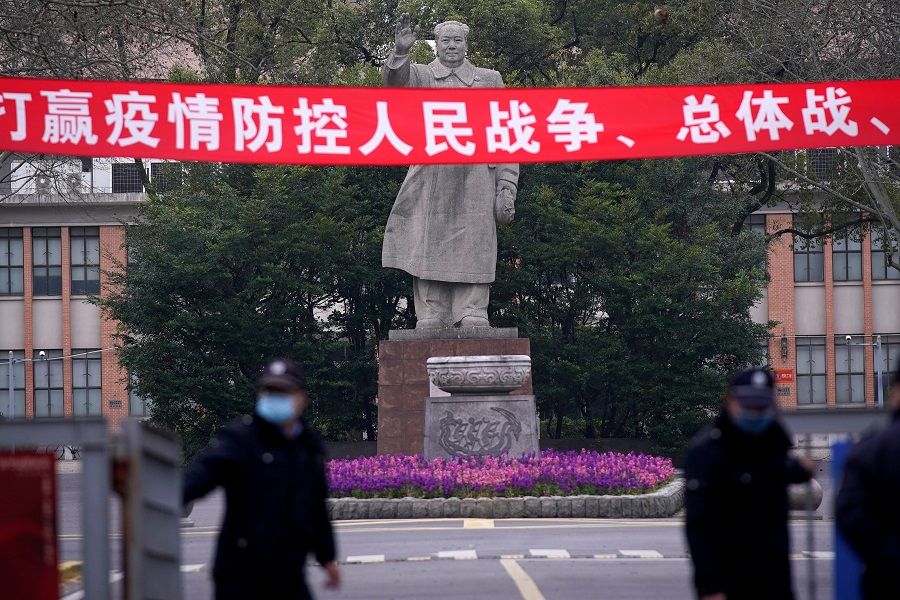
Next is the restoration of party and state integration, in which the government is replaced with the party. Then there is the establishment of CPC organisations in private and foreign enterprises, as well as social groups. Mao-era slogans are resurrected, such as these are heard again: "Party, government, military, civilian and academic; east, west, south, north, and centre - the party leads everything (党政军民学,东西南北中,党是领导一切的)." Within the party, there is a re-emphasis on political correctness, absolute loyalty and obedience when it comes to the promotion of cadres. Under such circumstances, the cult of personality is reignited.
This return to orthodoxy would once again stigmatise China as being like the former Soviet Union and other totalitarian states...
Emphasising the leading role of state-owned enterprises makes the sweeping economic reform programs passed by the Third Plenary Session of the 18th Central Committee of the CPC hard to implement. Some leftists even claimed, on the basis of Marxist theories, that private enterprises have already completed their role in history. Of the two engines that propelled China's economic boom - the government and enterprises - only the state-owned enterprises are left. These are all well-known facts, but are they considered subversive blunders? That would have to be judged based on the depth, extent, and duration of their impacts.
China's move to the left has international ramifications
Undoubtedly, China's left turn has far-reaching impacts internationally. Firstly, it fundamentally changes the nature of China-US relations and creates a chasm between China and Western countries, as well as various mainstream societies of the developing world. They would all consider China an oddity - a different species almost - regardless of whether they regarded China as an opponent and potential threat, or as an opportunity to be seized or someone to be made use of. This return to orthodoxy would once again stigmatise China as being like the former Soviet Union and other totalitarian states, and see a revival of labels almost forgotten in the West since reform and opening up: dictatorship, suppression of religion and freedom of speech, breach of human rights, external expansion, and so on.
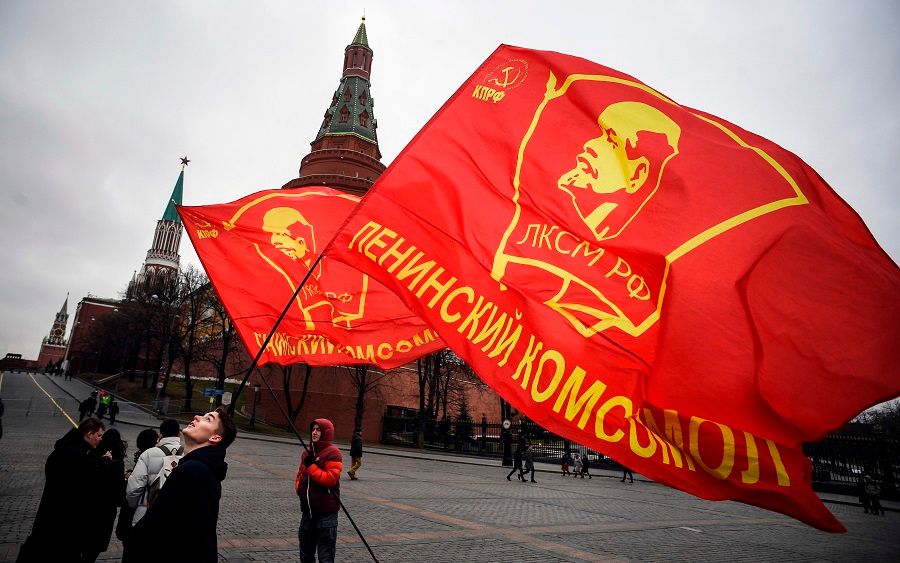
As China is viewed as a different "other", there is little basis for normal interactions between itself and other mainstream societies. Thus, every word of China's becomes misunderstood, every statistic released deemed falsified, every good deed taken in the wrong way, and even every assistance given to other countries amid the pandemic second-guessed. After the pandemic subsides, China would - for a long time - be troubled with the virus's origin and investigations of the Chinese government's early handling of the outbreak.
What were issues of separatism, terrorism and extremism in Taiwan, Hong Kong, and Xinjiang have become grossly simplified into cases of "good vs evil" in foreign media reports.
One might say, the conflict between the rising challenger and the incumbent hegemon is akin to the Chinese saying, "It rains when heaven deems fit, and mother remarries when she wants to" (天要下雨,娘要嫁人) - it is inevitable, especially since China and the US belong to different civilisations and races. However, the situation becomes vastly different once the conflict is viewed under the lens of different ideologies and values. Although Western liberalism is presently faced with unprecedented challenges, its core values remain mainstream in today's world. They are not only deeply entrenched in the Western world, but also spreading to the rest of the world, and deserve the label "universal values": ask any youngster living in any city of the world if he believes in freedom, democracy, human rights, law, and justice, and one can well-anticipate what his answer would be. An open objection to universal values would put one in an awkward position, turning one into the target of criticisms.
The CPC's Document No. 9 of the "seven speak-nots" has been leaked. It forbids the discussion in China about "universal values, press freedom, civil society, civil rights, judicial independence, crony capitalism, and historical mistakes of the CPC". China's "evil deeds" of arresting lawyers, obstructing freedom of speech, blocking information, implementing mass surveillance, demolishing churches, and oppressing believers have been widely reported by foreign media. What were issues of separatism, terrorism and extremism in Taiwan, Hong Kong, and Xinjiang have become grossly simplified into cases of "good vs evil" in foreign media reports.
China's ambition to establish an alternative international discourse to liberalism would take generations of tireless effort...Moreover, it is far from certain that China will succeed.
Calls for accountability checks over the outbreak of the pandemic are getting noisier, all pointing fingers to China's lack of transparency, its "totalitarian government" that is prone to lying, and its "communist system" that disregards human lives and disrespects human rights. Many of the US's policies towards China stem from the assumption of China being "evil". Once someone is labelled "evil", the US assault will be full-blown, relentless, and without reserve - it is dictated by the US's domestic politics.
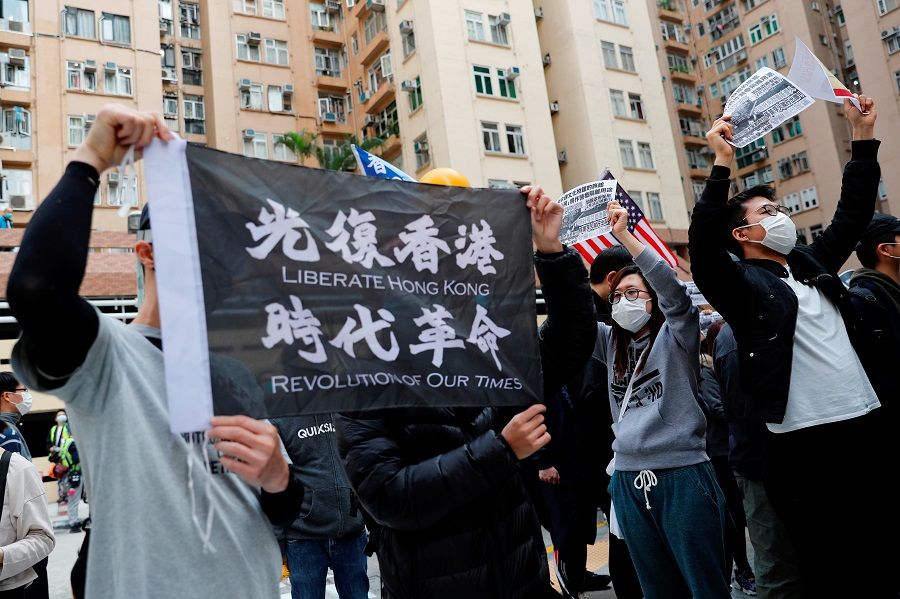
Thus the fight far exceeds the scope of competition between major powers - not only will China be at a disadvantage in attracting friends and allies, but its voice will also be drowned in accusations. The intense, proactive counterattacks by its diplomats and propaganda machinery may bring much satisfaction to the Chinese people, but they do little to solve the fundamental problems. Under the hegemony of liberalism discourse, China's grievances can hardly be heard. This is the reason why China is unable to narrate its story well and spread it far and wide. China's ambition to establish an alternative international discourse to liberalism would take generations of tireless effort - as the saying goes, "distant water would not quench one's immediate thirst", it would not help with the problems at hand. Moreover, it is far from certain that China will succeed.
Without a doubt, it is extremely unfair to demonise the Chinese Communist Party, given China's progress and achievements under its watch - the betterment of people's lives and, more recently, improvement of the environments, including core aspects like freedom, human rights, law, education, healthcare, social security, governmental services, and so on, are unprecedented in China and among the fastest in the world. These cannot be swept under the carpet - on the contrary, demonisation would result in a surge of nationalistic sentiments in the country, and strong support for the central government from the people.
Unfortunately, this tussle of values and ideology is causing a deadlock when it comes to Hong Kong and Taiwan, where anti-Mainland sentiment is getting to the point of no return, and unification is more difficult than ever before.
Meanwhile, the new contradictions and new problems in a rapidly changing world also present great challenges to Western liberalism. Liberal democracy has also been stretched thin in many areas and incapable of dealing with many new problems. In their handling of the pandemic, many countries have adopted some of China's practices, despite the cries of the West that the "grapes are too sour", and continuing in their old ways of finding faults in the nitty-gritty details while disregarding the full picture.
New understanding and impetus needed
In this age of upheaval, the meaning of values such as freedom, democracy, and human rights will keep evolving. The international community will gradually see the strengths of China's system, as well as the rationality and effectiveness of some of its policies and actions. However, it is also a fact that despite being a rising power, China has not been able to come up with sufficiently attractive alternative systems, beliefs, and values. On the contrary, returning to communist orthodoxy has caused renewed stigmatisation and instances of its rise being considered a threat. This does not help a country's long-term ascendancy, and has also limited the space for China's international rise. The CPC faces the challenge of smoothing out its relationship with the mainstream world values.
Unfortunately, this tussle of values and ideology is causing a deadlock when it comes to Hong Kong and Taiwan, where anti-Mainland sentiment is getting to the point of no return, and unification is more difficult than ever before. Previously, one common view was that time was on the side of mainland China: with its growing strength, Taiwan would have to go with the flow and reunify. However, looking at Hong Kong today, the long, intensely violent street protests borne of disagreement over values and political ideals have rendered Beijing inept. Imagine how difficult it will be for the Chinese government to win the hearts and minds of the people of Taiwan, which is several times larger than Hong Kong and has its own military and a mature democracy. Neither military strength and economic domination can conquer the hearts and minds of a people who do not share the same beliefs.
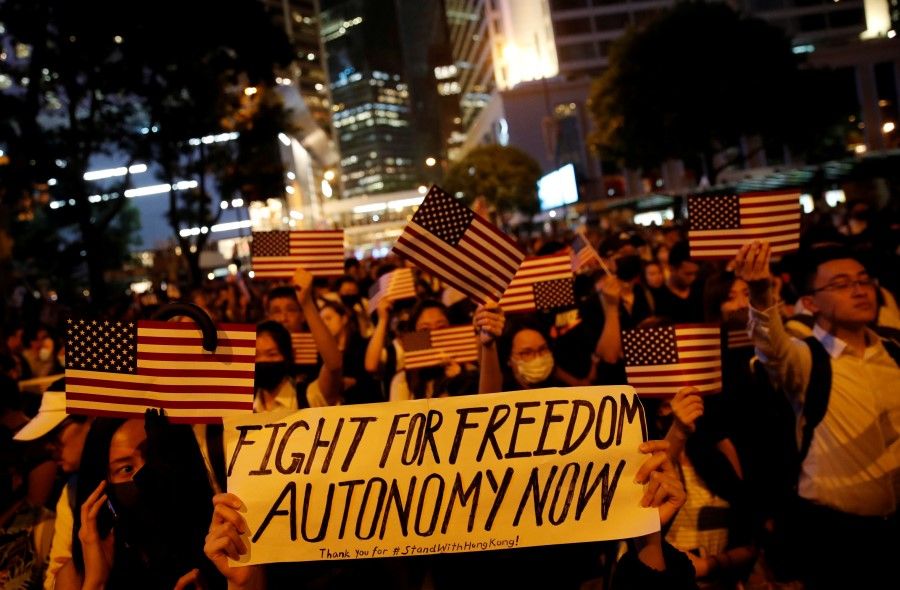
One might say that even if the CPC's swing towards the left puts it on the defensive internationally, everything will fall in place eventually as long as it manages to handle its domestic issues well. But is it smooth-sailing domestically? That is difficult to claim.
The removal of term limits has led to strong reactions overseas, with many neutral observers changing their views on China and joining the anti-China camp.
As mentioned above, one and half of China's twin growth engines - local governments and private enterprises - are no longer working well. This means that the economic slowdown may be a long-term problem, especially in the areas of unemployment and the difficulties for small- and medium-sized enterprises. Both social and economic vitality is a grave concern in the post-pandemic era. Centralised power and a return to orthodoxy have significantly suppressed autonomy of the localities and departments, in sharp contrast to the liveliness following the decentralizing reforms of Deng Xiaoping's time.
Politics is back in command, with so much time, effort, and resources going into pointless political studies. Cadres once again are promoted on the basis of loyalty and political correctness. The cult of personality, formalism and bureaucratism are making a comeback. The rule of man still overrides the rule of law, and hinders the modernisation of the system of governance and governing capability. It might seem like there was much progress in institution-building in recent years; but in fact, it is regressing under centralisation. For example, doing away with collective leadership and term limits, and the de-emphasis of the procedures of cadre selection, have all added uncertainty to the political situation. The removal of term limits has led to strong reactions overseas, with many neutral observers changing their views on China and joining the anti-China camp.
The current direction lacks consensus within the party and broader society. It is being implemented with high-handedness, generating widespread discontent, especially among the three key groups - cadres, intellectuals, and private entrepreneurs. The cadres have lost the most under sustained anti-corruption efforts and the centralisation of power; the intellectuals are unhappy with the suppression of freedom of speech and thought; and private enterprise owners are profoundly insecure under the bombardment of leftist rhetoric in the official media, leaving many eager to quickly move themselves and their assets overseas. If this continues, the discontent may spread through the larger population. One recent example is the strong reaction to the death of Dr Li Wenliang, who died of the coronavirus after trying to raise the alarm about it.
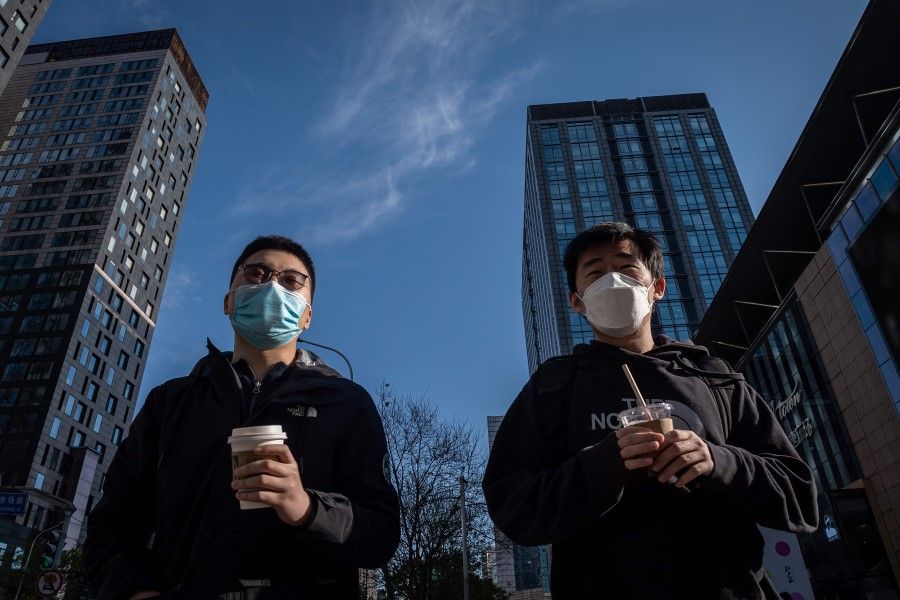
Move forward instead of looking to the past
So, is the CPC's swing to the left a temporary move, or is it a long-term fundamental shift? This calls for an analysis of its root causes.
Undoubtedly, the basic political structure and the system of party domination that have survived the reform and opening up furnish the foundation for the left turn. Leninist one-party rule requires an official ideology to uphold the system, and this ideology has to be Marxism. China's political system has been shown to be flexible and adaptable enough amid the great tide of reform and opening up, but it has also caused grave problems that have to be fixed if the party-state is to survive.
The immediate reason for the CPC's left turn is to rectify the cumulative problems of the Hu Jintao era - rampant corruption, political and economic oligarchies, local fiefdoms defying the central government, as well as the problems of atrophying party organisation and substandard party members. From this perspective, the shift could be temporary. It is a bit of over-correction but has, by and large, achieved its objectives.
With the party-state system still around and largely intact, it is easy for this generation to go back because going back is also returning to their comfort zone.
But the approach has been over-reliant on old ideas and tricks. It lacks creativity and bears clear generational characteristics. Political elites who grew up during the Cultural Revolution tend to be idealists, but their political aspirations carry the mark of that period, as shown in the trademark policies of the current regime, such as eradication of absolute poverty regardless of the cost, the intra-party education campaign of "stay true to oneself" (不忘初心), curbing extremism in Xinjiang with "re-education camps", and indoctrinating the population with the party ideology despite the diversification of society.
The current generation of top leaders are very familiar with the ways of Mao Zedong; the spirit and idealism of the Mao era is in their blood and shapes their behaviour. The old toolbox contains ready solutions for many real-world problems today, such as corruption, lax party discipline, bureaucratism, factionalism, and income polarisation. "Unity in thought, will and action", "politics in command", "thought reform" etc. are all hallmarks of Mao's tactics. With the party-state system still around and largely intact, it is easy for this generation to go back because going back is also returning to their comfort zone. With the nostalgia for and the mindset from that era, this generation of leadership has a tendency to attribute China's success in the past four decades not only to the reform and opening up but also to the persistence of one-party rule and the basic political structure established by Mao. Therefore, there is a certain inevitability in the left swing.
In short, leading a Deng Xiaoping-style economy with Mao Zedong-style politics is not sustainable.
Nevertheless, it is a generational phenomenon. The generation gap in China has an institutional manifestation: the older and more senior the officials get, the more powerful they become and the less they are willing to listen to others. They are more capable of using their power position to push their own political ideals - ideals from a bygone age. This means policies and measures tend to originate from the ideals of the older generation, not from the realities of the new era. This is a structural problem that future political reform has to address. But this is also why, although the CPC's shift to the left has led to many negative consequences, it is likely to be temporary because its impact on society is superficial - it cannot change the basic reality of a diversified society. More importantly, through the same ladder will rise new generations of politicians with a different mindset, views and perspectives. In other words, even subversive blunders committed by the party leadership may not be able to subvert China.
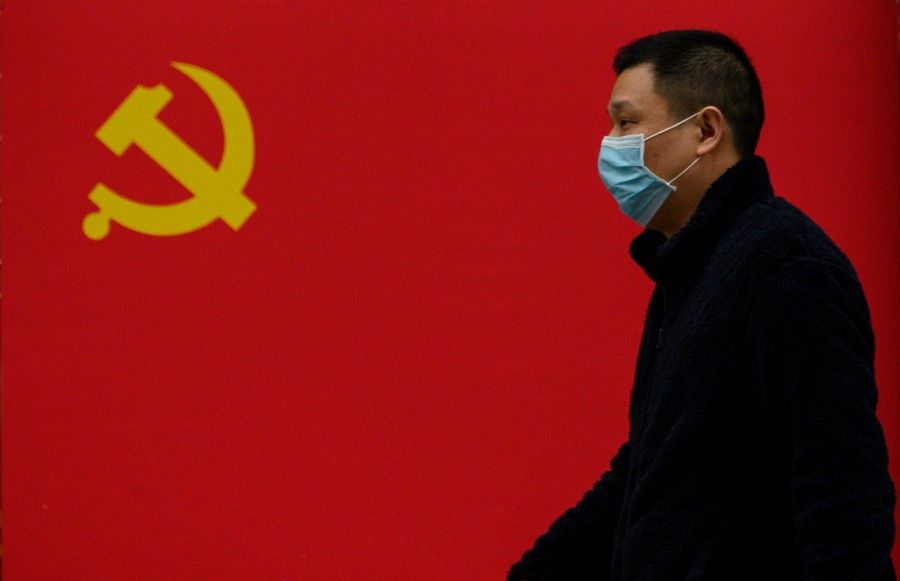
In short, leading a Deng Xiaoping-style economy with Mao Zedong-style politics is not sustainable. It tends to drag the economy back onto its old track. Each generation has its own mission in history. Shackled by their upbringing, the current generation of leadership is unlikely to pioneer a new model for China's future. The world today is too far away from the time in which they grew up. Compared with the younger generations, they are more removed from the rapidly changing reality. But they have been through thick and thin with the poor at the bottom of society. Compared to the generation after them that grew up in the materialistic era of reform and opening up, they are better positioned to clean up corruption and repair the moral fabric of society. If they can leave behind an effective system against corruption and a clean ruling party, they would have laid a key moral foundation for the future development of China. This is perhaps the most important historical mission for the current generation of Chinese leaders. They have nudged China back on a path of fairness and justice, and to some extent broken the curse of Chinese history - the petty official profiteering (官倒) during Deng Xiaoping's time, the collusion between power and money during Jiang Zemin's time, the political and economic oligarchies of Hu Jintao era, as well as official corruption that persisted for thousands of years in imperial China. If the final victory can be won, that contribution would go down in history as a landmark of progress.
But one important condition is that regular power succession is carried out to ensure constant supply of fresh leadership to propel the country forward.
Real innovations would fall to the next generation or generations of leaders. These people who grew up in the reform era do not have historical baggage, but they have sufficient knowledge, education, capability, and an international outlook to create a new perspective, system, and model that suits the country and global trends, and that will be globally accepted. For China's future leaders, the most important thing is to break out of the pattern of the "old" versus "evil" routes and blaze a new path; this is especially important in political reform.
The world undergoing rapid transformation also needs new ideas, theories and institutions, which gives China a historic opportunity to lead. A successful rising power needs something attractive to offer the world, but right now the CPC is resurrecting an old model that the world has long discarded. It is forfeiting the opportunity provided by the crisis of liberalism. Fortunately, the Western model is also on the decline and China still has time to catch up. As long as it moves in the right direction at the right time, and is bold enough to innovate well, China will continue on its ascent and head off a reversal of its fortune. But one important condition is that regular power succession is carried out to ensure constant supply of fresh leadership to propel the country forward.
Related: Did China win the fight against the virus but lose the world? | Growing China's soft power: Free debate and creative thinking are key | A better, stronger China after the epidemic? But at what cost? | Dawn of a new history: The search and re-creation of China's political and economic systems
